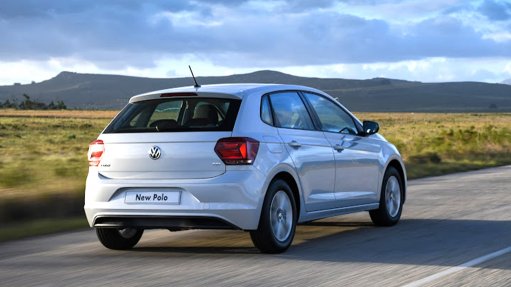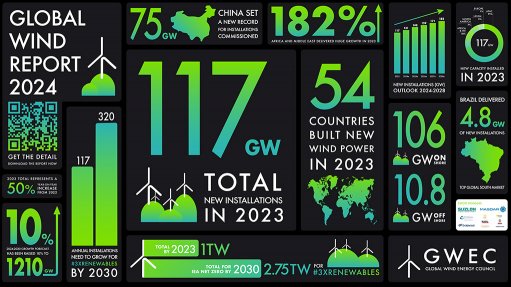Green energy a macroeconomic imperative, says VW’s Kamuhinda
Green technologies, electric cars included, are coming to Africa not just because of the Paris Climate Change Agreement, but because Africa has a problem of energy supply, says Volkswagen Africa business development director Serge Kamuhinda.
“For a country like Rwanda, fuel imports account for 12% of the trade deficit,” he notes.
“Even oil-producing countries like Nigeria import most of their [fuel].
“Ghana has to pay between $550-million and $850-million a year for gas-generated electricity not all being used.”
Kamuhinda says Ghana is looking at electric vehicles to see how it can use some of this excess energy.
“In Ethiopia, the government is looking at increased car sales as a problem of an increased forex deficit. Avoiding the higher consumption of fuel is one of the reasons why Ethiopia has one of the highest import taxes on vehicles,” he explains.
“So, what are we doing about it?
“In Rwanda, [Volkswagen] has introduced a fleet of fuel-efficient cars, and we have sensitised government to the issues around bad fuel.
Government is implementing Euro 4 fuel standards.”
South Africa is still on Euro 2 standards.
Kenya also moved to Euro 4 in 2020.
Volkswagen has also deployed 20 electric Golfs in Rwanda as airport shuttles and for e-hailing and corporate car sharing services. This roll-out is happening in partnership with Siemens, which is providing the charging stations.
“In Rwanda, we are testing the future of mobility by using the latest technology with app-enabled solutions. This will raise scepticism at first. Most people will ask why we don’t use older, and therefore cheaper technology,” says Kamuhinda.
“However, a closer look reveals a big problem ahead. Old powertrain technology is being phased out at a dramatic speed. The car is no longer about horsepower, but processing power.
“Horsepower has had linear growth, but processing power is growing exponentially, thereby threatening the digital gap [between Africa and the rest of the world] for decades to come.
In short, Africa may no longer be able to import cars from Europe or Asia, because of technological backwardness.”
Kamuhinda says a car made in Germany in 1950 could be driven in Africa in that same year, but that the same cannot be said for a car manufactured next year, as these cars are rapidly becoming connected and electric.
He adds that Africa is in need of innovative business models to address the affordability of mobility.
“Digitalisation offers the option of spreading the cost among many users, but it does not remove the initial financial burden.
“Companies therefore need strategic partnerships to ensure return of investment on mobility services. The key is to match political will with corporate bravery.”
Africa has abundant green energy and whoever is successful in shaping the future of mobility in South Africa will see green energy not as an ideological issue, but as a macroeconomic imperative, says Kamuhinda.
“They need to see mobility not just as a product, but as a unit of economic measurement. Simply put, mobility measures a country’s productivity, just as any other unit of economic measurement.”
Comments
Press Office
Announcements
What's On
Subscribe to improve your user experience...
Option 1 (equivalent of R125 a month):
Receive a weekly copy of Creamer Media's Engineering News & Mining Weekly magazine
(print copy for those in South Africa and e-magazine for those outside of South Africa)
Receive daily email newsletters
Access to full search results
Access archive of magazine back copies
Access to Projects in Progress
Access to ONE Research Report of your choice in PDF format
Option 2 (equivalent of R375 a month):
All benefits from Option 1
PLUS
Access to Creamer Media's Research Channel Africa for ALL Research Reports, in PDF format, on various industrial and mining sectors
including Electricity; Water; Energy Transition; Hydrogen; Roads, Rail and Ports; Coal; Gold; Platinum; Battery Metals; etc.
Already a subscriber?
Forgotten your password?
Receive weekly copy of Creamer Media's Engineering News & Mining Weekly magazine (print copy for those in South Africa and e-magazine for those outside of South Africa)
➕
Recieve daily email newsletters
➕
Access to full search results
➕
Access archive of magazine back copies
➕
Access to Projects in Progress
➕
Access to ONE Research Report of your choice in PDF format
RESEARCH CHANNEL AFRICA
R4500 (equivalent of R375 a month)
SUBSCRIBEAll benefits from Option 1
➕
Access to Creamer Media's Research Channel Africa for ALL Research Reports on various industrial and mining sectors, in PDF format, including on:
Electricity
➕
Water
➕
Energy Transition
➕
Hydrogen
➕
Roads, Rail and Ports
➕
Coal
➕
Gold
➕
Platinum
➕
Battery Metals
➕
etc.
Receive all benefits from Option 1 or Option 2 delivered to numerous people at your company
➕
Multiple User names and Passwords for simultaneous log-ins
➕
Intranet integration access to all in your organisation


















